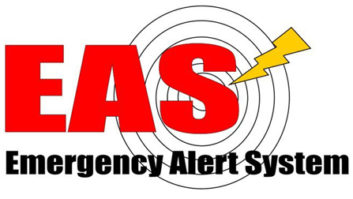
The FCC has approved another extension for broadcasters to comply with the CAP-EAS deadline.
The new deadline is June 30, 2012; the previous deadline was Sept. 30, 2011. An earlier deadline was extended in March of this year.
A cheer erupted in a regulatory session room at the Radio Show in Chicago at the news.
The commission yesterday approved a petition filed in July by NAB, 50 state broadcast associations and the District of Columbia, NPR, the Broadcast Warning Working Group, and public television and cable groups asking the commission for a quick decision. The petitoners sought a delay in when stations would need to have EAS equipment compatible with the new Common Alerting Protocol-formatted alerts.
The FCC has issued a Fourth Report and Order and said it plans another action “sufficiently in advance of June 30, 2012, to allow EAS participants ample time to comply with the new Part 11 rules.”
(The commission also gave broadcasters an extra two days to pay their regulatory fees. They’re now due by 11:59 p.m. Eastern Time tonight, Sept. 16. It did not state a reason in its decision, which it said was effective immediately.)
The FCC staff wrote: “While we agree … that the CAP standard is well established and that there is equipment that has already been deployed that complies with that standard, we nonetheless [also] agree … that until the commission has completed its rulemaking process, it cannot meaningfully impose a deadline by which EAS Participants must ‘receive CAP-formatted alerts.
“No one can comply with section 11.56 yet, because the commission has not finalized all the key technical specifics necessary for receiving CAP-formatted alerts,” it continued. “Without having these specifics, no EAS participant can claim that it is currently capable of receiving CAP-formatted alerts, even if it has equipment that could receive such alerts under one or more of the technical specifications being considered by the commission.”









